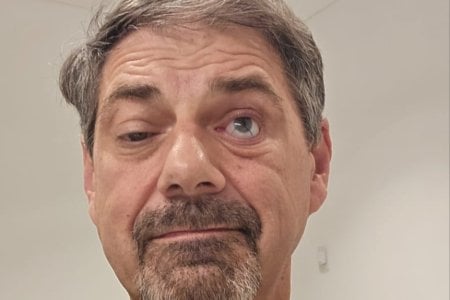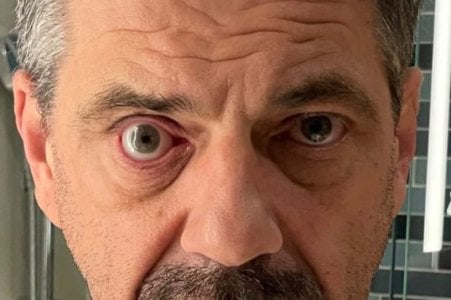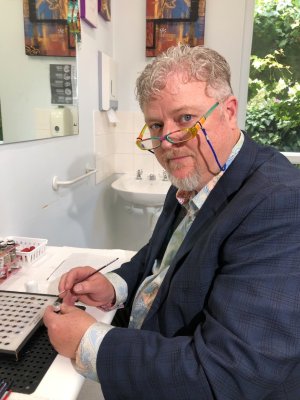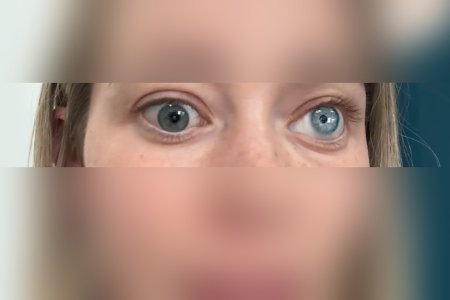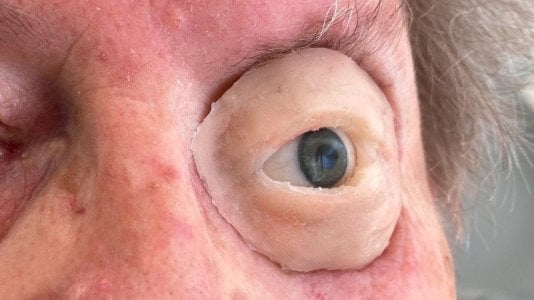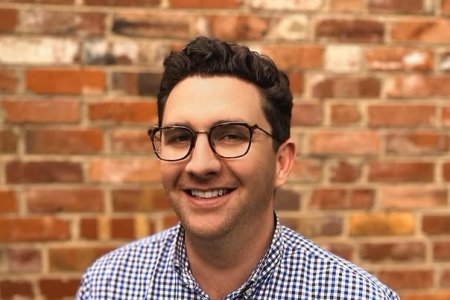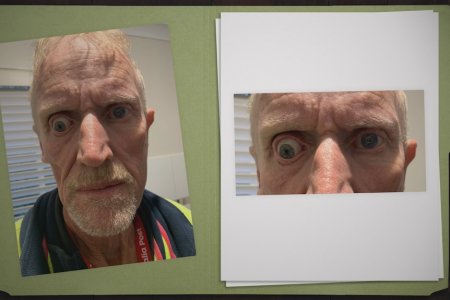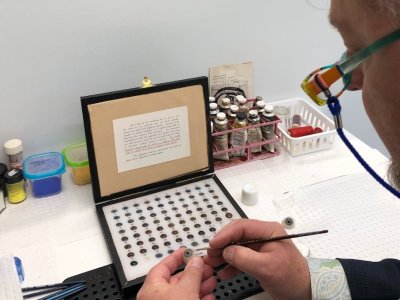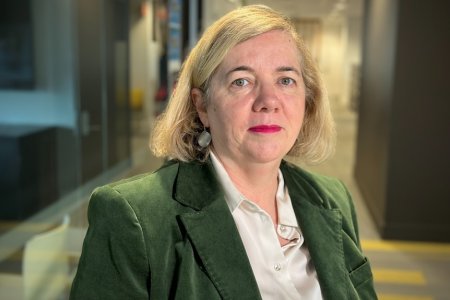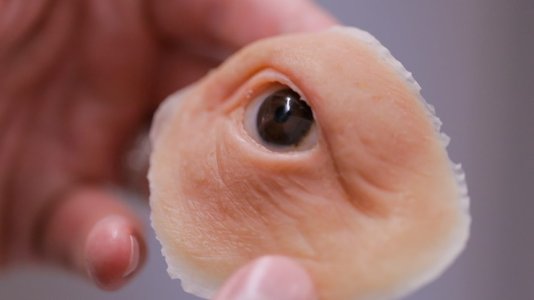More grievances against prosthetic eye maker Jack McDonald's work
By
ABC News
- Replies 0
Ron Clark lost an eye after developing a severe infection.
"The eye sort of melted, and they had to do emergency surgery to remove it," he said.
As a consultant who spends much of his time doing business face-to-face, Mr Clark was eager to have an artificial eye made.
But he was very unhappy with the eye made for him by ocularist Jack McDonald, which he said "bulged out of the socket".
He said the situation became "intolerable" after the eye fell out while he was at dinner.
"I was actually chasing [it] around the restaurant floor and the back of the eye was white and so was the tile flooring of the restaurant."
"It was quite undesirable and confronting — a bit embarrassing frankly," he said.
Mr Clark decided to speak out after other clients of Mr McDonald shared their experiences with the ABC.
"I don't want anybody else to suffer through like I have," he said.
Mr McDonald is described on his website as a trained ocularist and maxillofacial (face and jaw) prosthetist providing "ultra-realistic and world-class prostheses".
His website states his services include prosthetic eyes, ears, fingers and noses.
Previously, his website stated Mr McDonald was operating out of offices in Sydney, Melbourne, Dandenong, Hobart, Adelaide, Brisbane, Perth, Geelong and Auckland.
Now, his website no longer lists the locations he works from, but there are contact numbers for Sydney and Melbourne offices.
Fifteen people contacted the ABC with similar stories of disappointment and dissatisfaction with Mr McDonald's work after the initial story about him was published.
"It's something that brings out a lot of emotion in me because it's a very confronting experience," Mr Clark said.
"You don't plan for it [losing an eye], you don't enjoy it."
Do you know more? Contact Fiona Blackwood at [email protected].
Mr Clark lost faith in the process and has since had an eye made with a different ocularist, which he is very satisfied with.
The president of the Ocularists Association of Australia, Peter Knowles, who has more than 35 years of experience, took a look at the eye Mr McDonald made for Mr Clark.
He described it as unsightly and "bulging, its gaze is upward, its colour doesn't match".
"It's loading the lower eyelid in a manner that could cause damage and therefore [could] need surgical construction," Mr Knowles said.
Mr Knowles said he also received phone calls from unhappy clients of Mr McDonald after the ABC story was published.
"A lot of these people are distraught,"
he said.
Mr Knowles is concerned Mr McDonald is continuing to see patients.
"Physically, mentally, emotionally, it's been a real challenge for the last six years,"
she said.
She initially saw Jack McDonald for an unrelated matter last year, and he promised he could make her a better artificial eye than the one she already had.
With high hopes, Liana paid $2,800 up front for the eye at her first appointment in August last year.
She said she attended 11 appointments, but Mr McDonald struggled to get the eye right.
"The prosthetic he created looked unnatural and was the wrong size; it protruded so far that it was unsettling to look at," she said.
"Each week, it got worse, it looked like I had cataracts or even like I was a corpse."
Liana said she also received frequent text messages from Mr McDonald's office cancelling or rescheduling appointments.
"On the last occasion, when they blamed flight delays from Hobart, I checked all carriers and found no cancellations or delays that day," she said.
She twice asked Mr McDonald for a refund, but was refused.
In the end, she provided evidence to her bank demonstrating that she had not received an acceptable eye and the bank agreed to reverse the $2,800 credit card payment to Mr McDonald.
"My experience with Jack was traumatic, losing my eye to cancer in 2019 was one of the hardest years of my life, and Jack reopened many of those emotional wounds while making me feel even more insecure," she said.
She is calling for regulation of the industry.
"There needs to be someone there to say: 'Your work is not up to standard, you can't be operating,'" she said.
There are no government regulatory hurdles to clear before being able to act as an ocularist in Australia and no requirement to be a member of an Ocularist Association.
Mr McDonald is not a member of the Ocularist Association of Australia, nor is he required to be.
He has not responded to the ABC's request for comment.
He said after 21 appointments, he has given up hope Mr McDonald will ever make him a wearable artificial eye.
Those so far have been the wrong colour, ill-fitting and painful, he said.
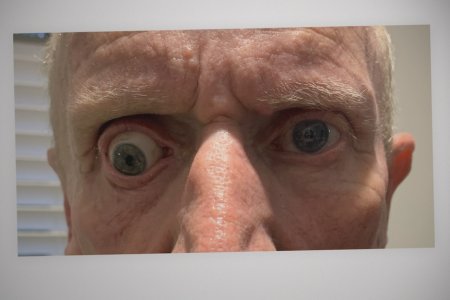
"Absolutely terrible and very disheartening," Mr Dryden said.
"When I saw the eye I almost burst out crying .. and my wife was crying,"
he said.
Mr Dryden took out a bank loan to pay $2,800 for the eye.
With travel costs associated with his many appointments, he said his efforts for a suitable prosthetic have "roughly cost me $6,000 within the 12 months".
He said he pursued a refund, but Mr McDonald refused.
Mr Dryden is having to make do with a scratched artificial eye, which he has had for more than 30 years — as he can't afford to see another ocularist.
He said he wants to take legal action against Mr McDonald, but can't afford that either.
"I just don't understand how a human being could do that to someone else,"
Mr Dryden said.
"He needs to be accountable for what he's done to people, not only myself, other people."
But he is concerned that many clients with grievances, like Mr Dryden, are out of pocket.
He said while some clients can't afford legal fees, clients could consider a class action.
Mr Knowles said people who have lost an eye through trauma, birth deformity or disease are vulnerable, and there "should be a mechanism whereby a person can be made accountable".
'There is no such thing as pleasant eye loss … and so to give them back an eye is to give them back their connection with people," he said.
The unregulated nature of the industry means avenues for help or refunds are unclear, according to the Consumers Health Forum of Australia.
"The health complaints space is a very busy and sometimes very messy area to navigate as a community member," chief executive Dr Elizabeth Deveny said.
The Consumers Health Forum is calling on the federal government to bring the sector together with clients and clinicians to talk about how best to improve the situation.
"Australians deserve better than this, the system should protect them not leave them in the lurch when they really need support,"
Dr Deveny said.
"These devices affect people's lives in their function, their dignity, their ability to do things.
"It's terrible to hear that people have had a very poor experience."
*Name has been changed for privacy.
Written by Fiona Blackwood, ABC News.
"The eye sort of melted, and they had to do emergency surgery to remove it," he said.
As a consultant who spends much of his time doing business face-to-face, Mr Clark was eager to have an artificial eye made.
But he was very unhappy with the eye made for him by ocularist Jack McDonald, which he said "bulged out of the socket".
He said the situation became "intolerable" after the eye fell out while he was at dinner.
"I was actually chasing [it] around the restaurant floor and the back of the eye was white and so was the tile flooring of the restaurant."
"It was quite undesirable and confronting — a bit embarrassing frankly," he said.
Mr Clark decided to speak out after other clients of Mr McDonald shared their experiences with the ABC.
"I don't want anybody else to suffer through like I have," he said.
Mr McDonald is described on his website as a trained ocularist and maxillofacial (face and jaw) prosthetist providing "ultra-realistic and world-class prostheses".
His website states his services include prosthetic eyes, ears, fingers and noses.
Previously, his website stated Mr McDonald was operating out of offices in Sydney, Melbourne, Dandenong, Hobart, Adelaide, Brisbane, Perth, Geelong and Auckland.
Now, his website no longer lists the locations he works from, but there are contact numbers for Sydney and Melbourne offices.
Fifteen people contacted the ABC with similar stories of disappointment and dissatisfaction with Mr McDonald's work after the initial story about him was published.
"It's something that brings out a lot of emotion in me because it's a very confronting experience," Mr Clark said.
"You don't plan for it [losing an eye], you don't enjoy it."
Do you know more? Contact Fiona Blackwood at [email protected].
Ocularist association fields 'distraught' calls from McDonald clients
Mr Clark said his experience with Mr McDonald was characterised by "multiple visits, multiple cancellations, multiple attempts at creating the eye, followed by a failure to succeed".Mr Clark lost faith in the process and has since had an eye made with a different ocularist, which he is very satisfied with.
The president of the Ocularists Association of Australia, Peter Knowles, who has more than 35 years of experience, took a look at the eye Mr McDonald made for Mr Clark.
He described it as unsightly and "bulging, its gaze is upward, its colour doesn't match".
"It's loading the lower eyelid in a manner that could cause damage and therefore [could] need surgical construction," Mr Knowles said.
Mr Knowles said he also received phone calls from unhappy clients of Mr McDonald after the ABC story was published.
"A lot of these people are distraught,"
he said.
Mr Knowles is concerned Mr McDonald is continuing to see patients.
Client says eye made her look 'like a corpse'
Liana* lost her eye to melanoma when she was just 29."Physically, mentally, emotionally, it's been a real challenge for the last six years,"
she said.
She initially saw Jack McDonald for an unrelated matter last year, and he promised he could make her a better artificial eye than the one she already had.
With high hopes, Liana paid $2,800 up front for the eye at her first appointment in August last year.
She said she attended 11 appointments, but Mr McDonald struggled to get the eye right.
"The prosthetic he created looked unnatural and was the wrong size; it protruded so far that it was unsettling to look at," she said.
"Each week, it got worse, it looked like I had cataracts or even like I was a corpse."
Liana said she also received frequent text messages from Mr McDonald's office cancelling or rescheduling appointments.
"On the last occasion, when they blamed flight delays from Hobart, I checked all carriers and found no cancellations or delays that day," she said.
She twice asked Mr McDonald for a refund, but was refused.
In the end, she provided evidence to her bank demonstrating that she had not received an acceptable eye and the bank agreed to reverse the $2,800 credit card payment to Mr McDonald.
No regulation of ocularist profession
Liana's experience has come at a personal cost."My experience with Jack was traumatic, losing my eye to cancer in 2019 was one of the hardest years of my life, and Jack reopened many of those emotional wounds while making me feel even more insecure," she said.
She is calling for regulation of the industry.
"There needs to be someone there to say: 'Your work is not up to standard, you can't be operating,'" she said.
There are no government regulatory hurdles to clear before being able to act as an ocularist in Australia and no requirement to be a member of an Ocularist Association.
Mr McDonald is not a member of the Ocularist Association of Australia, nor is he required to be.
He has not responded to the ABC's request for comment.
Refused refund leaves client unable to afford replacement
Wayne Dryden described his year-long wait for Jack McDonald to make him a suitable eye as "one of the worst experiences" of his life.He said after 21 appointments, he has given up hope Mr McDonald will ever make him a wearable artificial eye.
Those so far have been the wrong colour, ill-fitting and painful, he said.

Wayne Dryden can't afford to see a different ocularist after receiving unsuitable eyes from Jack MacDonald.
"Absolutely terrible and very disheartening," Mr Dryden said.
"When I saw the eye I almost burst out crying .. and my wife was crying,"
he said.
Mr Dryden took out a bank loan to pay $2,800 for the eye.
With travel costs associated with his many appointments, he said his efforts for a suitable prosthetic have "roughly cost me $6,000 within the 12 months".
He said he pursued a refund, but Mr McDonald refused.
Mr Dryden is having to make do with a scratched artificial eye, which he has had for more than 30 years — as he can't afford to see another ocularist.
He said he wants to take legal action against Mr McDonald, but can't afford that either.
"I just don't understand how a human being could do that to someone else,"
Mr Dryden said.
"He needs to be accountable for what he's done to people, not only myself, other people."
Nowhere to go when things go wrong
Ocularist Peter Knowles has encouraged unsatisfied clients of Jack McDonald to go to their state's Health Complaints Commission.But he is concerned that many clients with grievances, like Mr Dryden, are out of pocket.
He said while some clients can't afford legal fees, clients could consider a class action.
Mr Knowles said people who have lost an eye through trauma, birth deformity or disease are vulnerable, and there "should be a mechanism whereby a person can be made accountable".
'There is no such thing as pleasant eye loss … and so to give them back an eye is to give them back their connection with people," he said.
The unregulated nature of the industry means avenues for help or refunds are unclear, according to the Consumers Health Forum of Australia.
"The health complaints space is a very busy and sometimes very messy area to navigate as a community member," chief executive Dr Elizabeth Deveny said.
The Consumers Health Forum is calling on the federal government to bring the sector together with clients and clinicians to talk about how best to improve the situation.
"Australians deserve better than this, the system should protect them not leave them in the lurch when they really need support,"
Dr Deveny said.
"These devices affect people's lives in their function, their dignity, their ability to do things.
"It's terrible to hear that people have had a very poor experience."
*Name has been changed for privacy.
Written by Fiona Blackwood, ABC News.


